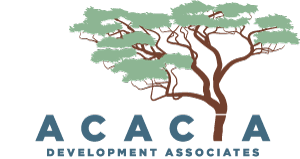Central African Republic (CAR) has been in one form or another of political or security crisis for a very long time indeed. More recently, the political crisis has been overshadowed by the security crisis, with control over the use of force significantly contested; and the international arbiter – a United Nations peace support operation – failing to act with legitimacy or credibility.
Conventional wisdom suggests that the solution to this problem is the reinforcement – either through transformation or funding – of the security sector. But to do so in a political context which is so weak would simply create another, more influential and forceful actor in an already crowded space. Alongside this conventional approach to security sector development sits a sense that the architecture of government needs to be strengthened, transformed and/or generally improved. And it probably does. But in a context where everything is important, how does one decide what to do and when to do it?
Improving the security situation in a country is not just about strengthening (or limiting) the security actors; nor just about making them both effective and accountable. Sometimes it is about leadership and vision – essential elements in a country deciding what it wants from its future and how it is going to get it. In the case of CAR, although all branches of government – and the experience of governance for ordinary people – are critically weak, the stand out problem is a lack of vision. CAR’s politicians are not providing the leadership that people want and need, and are therefore unable to compete with the overwhelming logic of submitting to the nearest, strongest actor. It is this lack of vision, rather than an overweening and broadly out of control security sector, which is the country’s most signal weakness and failure.
Addressing this weakness ought to be relatively straightforward. Surely the good voters of CAR would be susceptible to a credible vison articulated by person, or group of people, able to speak to the issues of daily concern to the citizen. Curiously, the obstacles to this are a form of unconscious isomorphic mimicry. CAR’s political leaders are trying so hard to work out how to be attractive to international donors and investment that their political platforms address issues such as debt, legislative agendas and investment strategies rather than the issues likely to be of more direct interest to ordinary citizens – human security; health; education; and access to markets. Oh, and community security.
In the teeth of an impressive track record of failure, there is an emerging view amongst CAR’s political elite that the problem might be the forms of international alliances on offer. Where La Francophonie has apparently failed, might perhaps something more Anglo-Saxon be better? But this apparently binary choice belies a deeper problem. Not that of choosing between imported value sets and spheres of influence, but the need to develop a much more CAR owned and led vision for the future – drawing on the ideas and resources available in the word today, unlimited by colonial throwbacks and artificial ties.
So the first step in identifying the answers to CAR’s security and development problems should lie not in choosing someone else’s agenda, but in the decolonisation of the minds of the country’s political elite and the solutions which they both propose and seek.
JAB

Leave A Comment